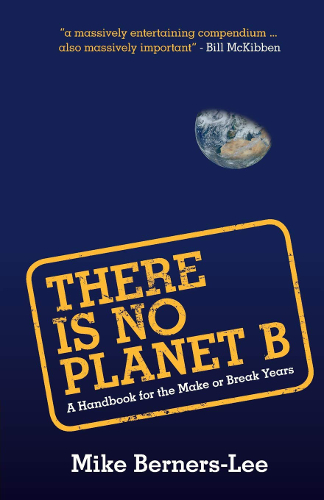
There is No Planet B maps it out in an accessible and entertaining way, filled with astonishing facts and analysis.

But what is most pressing, what are the knock-on effects of our actions, and what should we do first? Do we all need to become vegetarian? How can we fly in a low-carbon world? Should we frack? How can we take control of technology? Does it all come down to population? And, given the global nature of the challenges we now face, what on Earth can any of us do? Fortunately, Mike Berners-Lee has crunched the numbers and plotted a course of action that is practical and even enjoyable. Berners-Lee is a professor in the Institute for Social Futures at Lancaster University, where he develops practical tools for thinking about the future, and researches the global food system and carbon metrics.įeeding the world, climate change, biodiversity, antibiotics, plastics - the list of concerns seems endless. This book explores the big picture of climate change and the underlying global dynamics, asking what mix of politics, economics, psychology and technology is really required to deal with the problem. So How Do We Quit? (2013, co-written with Duncan Clark).

His previous books include How Bad Are Bananas?: The Carbon Footprint of Everything (2010) and The Burning Question: We Can't Burn Half the World's Oil, Coal, and Gas. SWC is a leader in the field of carbon metrics, targets and actions. He is the founder of Small World Consulting (SWC), an associate company of Lancaster University, which works with organisations from small businesses to the biggest tech giants. Mike Berners-Lee thinks, writes, researches and consults on sustainability and responses to the challenges of the twenty-first century.

Se alle bøker innen Medisin, helse og psykologi ».


 0 kommentar(er)
0 kommentar(er)
